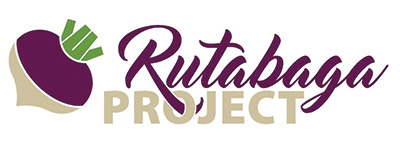Healthy Highlight
Healthy fresh food is easier to get in Virginia, Minn., thanks to a new program with grassroots support and an imaginative name. The Rutabaga Project’s goal is to craft community-based solutions to make produce more accessible and affordable.
Much of its success originated with participants, who envisioned how the Rutabaga Project could meet local needs, says Chris Strand, an Extension educator in Supplemental Nutrition Assistance Program Education (SNAP-Ed). They began by choosing a name that paid tribute to the root vegetable that helped sustain families during the Iron Range’s often-hardscrabble history.
“This is very much a community-driven project,” Strand says. Program participants helped identify locations for community gardens, for instance, including a wheelchair-accessible one. Work already undertaken by the Arrowhead Economic Opportunity Agency and Iron Range Partnership for Sustainability helped the project hit the ground running.
The project facilitated use of electronic benefit transfer cards for farmers market purchases in Virginia, mirroring a similar accomplishment in other Minnesota communities. The Rutabaga Project also is helping households get produce distributed via community-supported agriculture projects.
“This has been about finding solutions and eliminating barriers,” says Brian Bluhm, project coordinator for the Arrowhead Economic Opportunity Agency.
Fifteen seed grants were awarded by Extension as part of SNAP-Ed Community Partnerships last year. Through them, more than 23,000 participants have been part of efforts that prioritize:
- Empowering local residents to lead changes in food and nutrition systems
- Improving community gardens and innovative ways to grow vegetables
- Buying and consuming healthier food from stores and farmers markets


